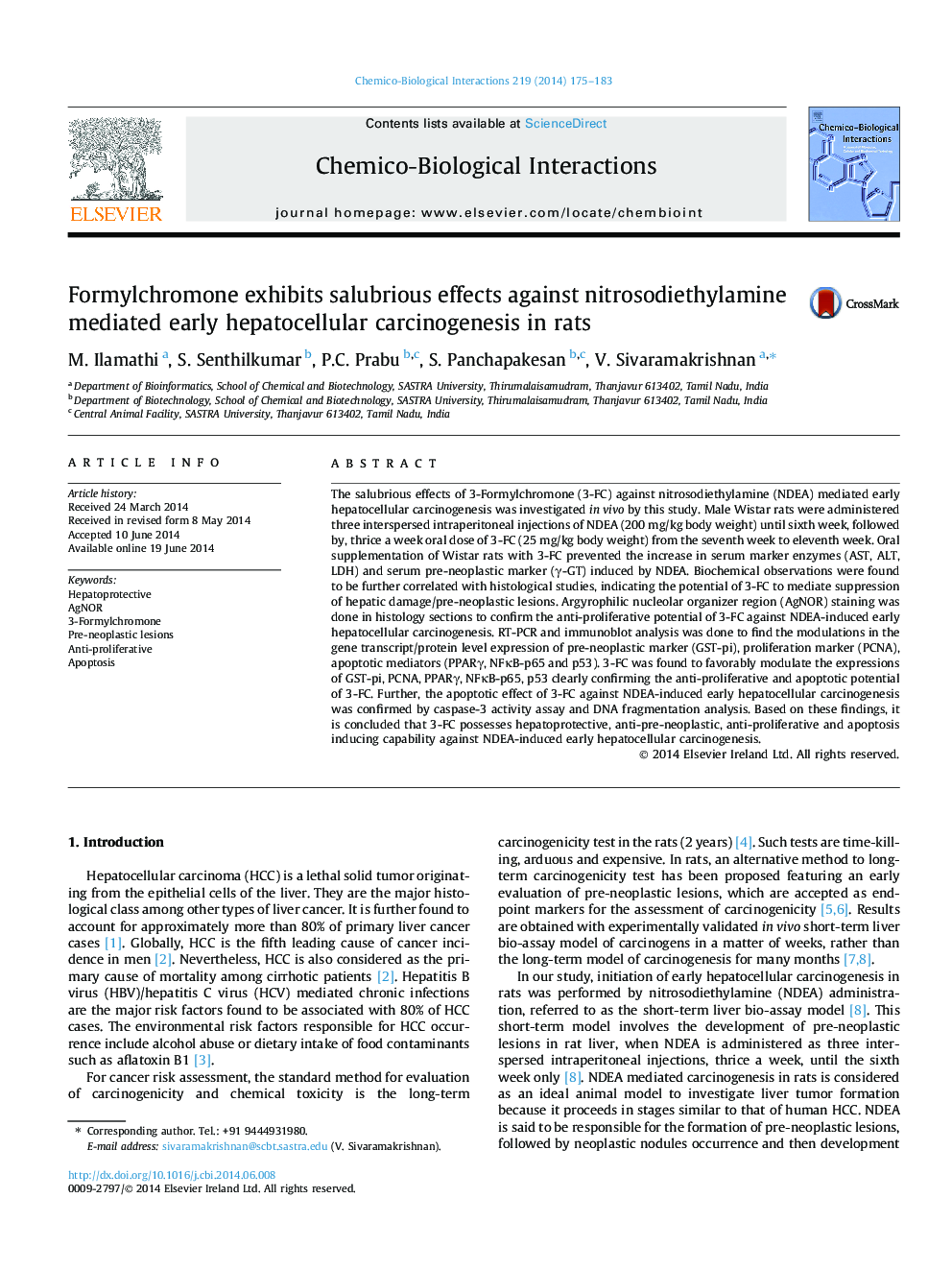| Article ID | Journal | Published Year | Pages | File Type |
|---|---|---|---|---|
| 2580447 | Chemico-Biological Interactions | 2014 | 9 Pages |
•The role of 3-FC supplementation in vivo against early HCC was investigated.•3-FC enhances hepatoprotection and prevents NDEA mediated pre-neoplastic lesions.•3-FC significantly reduces proliferation and favors apoptosis during early HCC.•3-FC favorably abrogates early HCC by modulating PPARγ–NF-κB–p53 signaling.
The salubrious effects of 3-Formylchromone (3-FC) against nitrosodiethylamine (NDEA) mediated early hepatocellular carcinogenesis was investigated in vivo by this study. Male Wistar rats were administered three interspersed intraperitoneal injections of NDEA (200 mg/kg body weight) until sixth week, followed by, thrice a week oral dose of 3-FC (25 mg/kg body weight) from the seventh week to eleventh week. Oral supplementation of Wistar rats with 3-FC prevented the increase in serum marker enzymes (AST, ALT, LDH) and serum pre-neoplastic marker (γ-GT) induced by NDEA. Biochemical observations were found to be further correlated with histological studies, indicating the potential of 3-FC to mediate suppression of hepatic damage/pre-neoplastic lesions. Argyrophilic nucleolar organizer region (AgNOR) staining was done in histology sections to confirm the anti-proliferative potential of 3-FC against NDEA-induced early hepatocellular carcinogenesis. RT-PCR and immunoblot analysis was done to find the modulations in the gene transcript/protein level expression of pre-neoplastic marker (GST-pi), proliferation marker (PCNA), apoptotic mediators (PPARγ, NFκB-p65 and p53). 3-FC was found to favorably modulate the expressions of GST-pi, PCNA, PPARγ, NFκB-p65, p53 clearly confirming the anti-proliferative and apoptotic potential of 3-FC. Further, the apoptotic effect of 3-FC against NDEA-induced early hepatocellular carcinogenesis was confirmed by caspase-3 activity assay and DNA fragmentation analysis. Based on these findings, it is concluded that 3-FC possesses hepatoprotective, anti-pre-neoplastic, anti-proliferative and apoptosis inducing capability against NDEA-induced early hepatocellular carcinogenesis.
